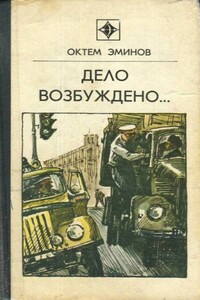Pop Goes the Weasel | страница 117
‘Well, maybe if we meet again, I can tell you more about her. I’d like to. Her life wasn’t always happy but you were the best thing in it.’
Suddenly the boy was crying. Years of questions, years of feeling incomplete, catching up with him. Helen was fighting tears too, but fortunately Robert had dropped his head, so her distress went unnoticed.
‘I’d like that,’ he said through tears.
‘Good,’ Helen replied, recovering her composure. ‘Let’s keep it between us for now. Until we know each other a little better, eh?’
Robert nodded, rubbing his eyes with his hands.
‘This isn’t the end, Robert. It’s the beginning.’
Thirty minutes later, Robert was in a cab heading home. Helen watched the cab go, then climbed on her bike. Despite the many problems that lay ahead, despite the many dark forces swirling around her, Helen felt exhilarated. Finally, she was beginning to atone.
In the aftermath of Marianne’s death, Helen had devoured every aspect of her sister’s life. Many would have buried the experience away, but Helen had wanted to climb inside Marianne’s mind, heart and soul. She wanted to fill in the gaps, find out exactly what had happened to her sister in prison and beyond. Find out if there was any truth in Marianne’s accusation that she was to blame for all those deaths.
So she had dredged up every document that had ever been written for or about her sister and on page three of Marianne’s custody file she stumbled upon the bombshell that had shaken Helen’s world – a sign that her sister still had the power to hurt her from beyond the grave. Helen was only thirteen at the time of Marianne’s arrest and she had been spirited away to a care home straight after her parents’ murder. She hadn’t attended her sister’s trial in person – her testimony had been pre-recorded – and she was only told the verdict, nothing more. She hadn’t seen her sister’s swollen belly and Hampshire Social Services had kept mum about it, so it was only when skimming the medical assessment on her arrest sheet, expecting nothing more than the familiar bruises and scars, that Helen had discovered her sister was pregnant when arrested. Five months pregnant. Later DNA tests would prove that Marianne’s dad – the man she had murdered in cold blood – was the child’s father.
The baby had been taken away from Marianne minutes after delivery. Even now, after everything that had happened, that image still brought tears to Helen’s eyes. Her sister cuffed to a hospital bed, her baby forcibly taken from her after eighteen hours of labour. Did she fight them? Did she have the strength to resist? Helen knew instinctively that she would have. Despite the brutality of its conception, Marianne would have cared for that baby. She would have loved it fiercely, feeding off its innocence, but, of course, she was never given the chance. She was a killer, who received no sympathy from her captors. There was no humanity in the process, just judgement and retribution.




